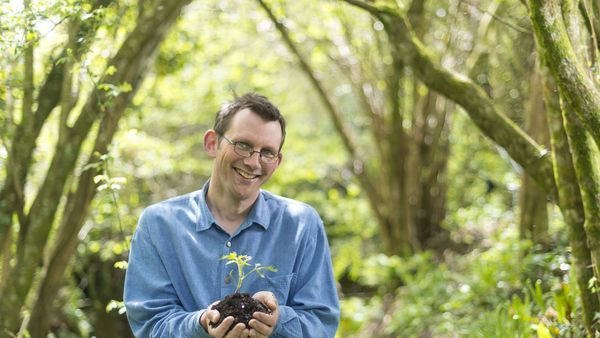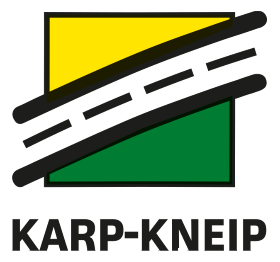
Ville en transition : L’urbanisme et les constructions de demain
March 19th ! Rob Hopkins, initiator of the transition towns’ Movement @Luxembourg

La ville post-carbone s’insère dans une politique de transition énergétique dont l’objectif fixé est notamment de diviser par 4 d’ici 2050 les émissions de gaz à effet de serre, d’atteindre une autonomie presque complète par rapport aux énergies carbone (pétrole, gaz, charbon), de développer une capacité suffisante d’adaptation aux changements climatiques et de porter une attention plus grande aux problèmes de précarité énergétique.
Mais la ville en transition n’est pas seulement cette approche politique. Elle est aussi, pour certains, une réponse simple aux problèmes de la planète, une prise de conscience, un appel à la créativité et à l’initiative. Aujourd’hui, elle s’exprime essentiellement localement, parfois simplement à l’échelle d’un îlot ou d’une rue. Ces initiatives locales de « transition » sont des réponses au pic pétrolier et aux changements climatiques. Elles invitent à repenser la façon dont nous nous alimentons, dont nous nous fournissons en matériaux de construction ou en énergie. Pour les grandes villes qui sont l’enjeu principal de la transition vers des sociétés post-carbone ou bas carbone, ceci implique, d’être moins dépendante du pétrole, de repenser la ville, de développer de nouveaux modèles d’urbanisation et de nouveaux modes de vie en communauté.
Source : http://www.cdu.urbanisme.developpement-durable.gouv.fr/IMG/pdf/synthese-ville-demain-version_finale_cle12216d.pdf
Le 19 mars, Rob Hopkins, l’initiateur du concept de Ville en transition viendra présenter sa vision. En effet, notre avenir ne peut plus reposer sur une exploitation infinie des ressources naturelles. En raison de ce constat, les urbanistes, les architectes et les ingénieurs du 21e siècle doivent repenser la ville, les espaces en général, et proposer de nouvelles idées pour l’habitat.
L’objectif de cette intervention est d’informer, de sensibiliser et de former les urbanistes, les architectes et les ingénieurs-conseils à propos de cette vision nouvelle.
Agenda de la matinée : Cliquez ici
Rob Hopkins s’attache à promouvoir les stratégies communautaires en réponse au pic pétrolier, se concentrant sur un effort coopératif pour subvenir aux besoins fondamentaux, aussi durables et près du domicile que possible. En seulement quelques années, les travaux de Rob Hopkins ont inspiré un mouvement international réunissant des centaines de communautés et des milliers de personnes poursuivant des imitatives de transition.
Enseignant de permaculture et d’autres techniques de construction naturelle, Rob est co-fondateur du Transition Network, et auteur des livres The Transition Handbook : From oil dependency to local resilience (2008) et The Transition Companion (2011). Il a été le gagnant du 2008 Schumacher Award , est membre du Ashoka, a été le mandataire du Soil Association pendant 3 ans, et a été nommé l’un des top 100 environmentalistes de Grande-Bretagne par Independent.
Practical information
Date : March 19th, 2015
Schedule : 08:30 am - 12:30 pm
Location :
Luxembourg Institute of Science and Technology
29, avenue J.F. Kennedy L-1855 Luxembourg
Registration fee :
– OAI Members : 180€
– OAI Non-Members : 300€

Transition Towns : Tomorrow’s urban planning & buildings
The post-carbon village integrates into the energy transition policy and the objective of the project is to reduce today’s global greenhouse gas emissions to a quarter by 2050, to achieve an almost complete autonomy regarding carbon-sourced energies (oil, gas, carbon), to develop a sufficient capacity for adaption to climatic changes and to pay a higher attention to problems of fuel poverty.
Nevertheless, the village in transition does not only have this political approach. It is, for some, a simple reply to the planet’s problems, a growing awareness, a call for creativity and for initiative. Today, this is expressed mostly locally, sometimes simply within the reach of one block or one street. These local initiatives for transition are replies to the peak oil situation of to climatic changes. They invite to rethink our way of eating, or how we supply ourselves with construction materials or energy. For the large cities, who create the largest challenge for transition towards a post-carbon or low carbon society, this means that for being less dependent on oil, to rethink the city itself, and to develop new models of urbanization and new ways of community living.
Objective of the course
The vision of the future cannot be founded any longer on resource exploitation as an inexhaustible one. Due to this observation, the urban planners, architects and engineers of the 21st century have to rethink the city, spaces in general, and to propose new ideas for the habitat.
The objective of this training is to inform, aware and train urban planners, architects and consulting engineers about this new vision.
.jpg)
CURRICULUM VITAE
Rob Hopkins is the co-founder of Transition Town Totnes and of the Transition Network. This grew out of many years experience in education, teaching permaculture and natural building, and setting up the first 2 year full-time permaculture course in the world , at Kinsale Further Education College in Ireland, as well as co-ordinating the first eco-village development in Ireland to be granted planning permission . He is author of ‘ The Transition Handbook : from oil dependence to local resilience’ , which has been published in a number of languages, and which was voted the 5th most popular book taken on holiday by MPs during the summer of 2008, and more recently of ‘The Transition Companion : making your community more resilient in uncertain times’ , published in October 2011 and The Power of Just Doing Stuff : how local action can change the world , published in June 2013. He publishes a ...Read more
QUICK LINKS (YOUTUBE)
In Transition 2.0 : a story of resilience and hope in extraordinary times
My Town in Transition : Rob Hopkins at TEDxExeter
PARTNERS

(Photo : Jim Wileman)

























































